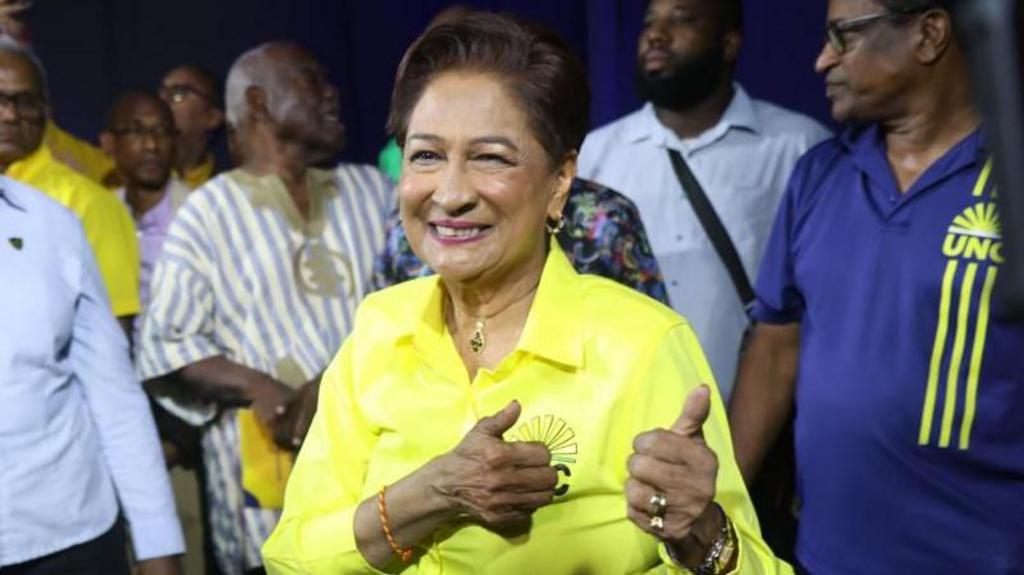Preliminary election results indicate that the opposition has secured a significant triumph in Trinidad and Tobago’s parliamentary polls held on Monday.
The victory by the centrist United National Congress (UNC) positions Kamla Persad-Bissessar to become the country’s next prime minister.
Persad-Bissessar, 73, previously served as prime minister from 2010 to 2015, before her party suffered two consecutive defeats to the centre-left People’s National Movement (PNM).
Early tallies suggest the UNC—campaigning on pledges to boost wages and spur job creation—captured a number of seats formerly held by the incumbent PNM.
PNM leader Keith Rowley openly conceded late Monday, acknowledging a disappointing outcome for his party and recognizing the loss.
Rowley, 75, served as prime minister from 2015 until March this year, when he announced his resignation, transitioning leadership to 50-year-old energy minister Stuart Young.
Young called a snap election within hours of being sworn in as prime minister, rather than completing Rowley’s term.
Observers widely viewed this move as an effort by Young to legitimize his leadership amidst opposition criticism regarding the legality of his appointment.
The vote took place against a backdrop of rising homicide rates and ongoing economic challenges.
In December, the outgoing administration imposed a state of emergency, which remained in effect for 105 days.
Throughout her campaign, Persad-Bissessar specifically pledged to increase public sector wages to help offset the rising cost of living.
She reiterated this commitment following her party’s victory.
“This is a win for our seniors to maintain their pensions. This is a win for public servants to achieve fair pay increases. This is to reopen the children’s hospital and to resume distributing laptops to students. Above all, it’s about creating over 50,000 new jobs,” she addressed supporters gathered at the party headquarters.
Persad-Bissessar also pledged inclusivity, emphasizing, “No one will be left behind—when the UNC succeeds, everyone benefits.”
Shailyn Peña is among many people searching for loved ones after a nightclub roof collapsed in Santo Domingo.
More than 150 individuals have been injured as rescuers continue efforts to find survivors in Santo Domingo.
Relatives and friends of missing people in Antigua share their anguish in conversations with the BBC.
Jessica Ashman is urging a reconsideration of how certain artefacts were acquired in the Caribbean.
A debate has arisen over whether ageing and bottling the spirit abroad should be considered acceptable.

